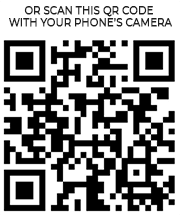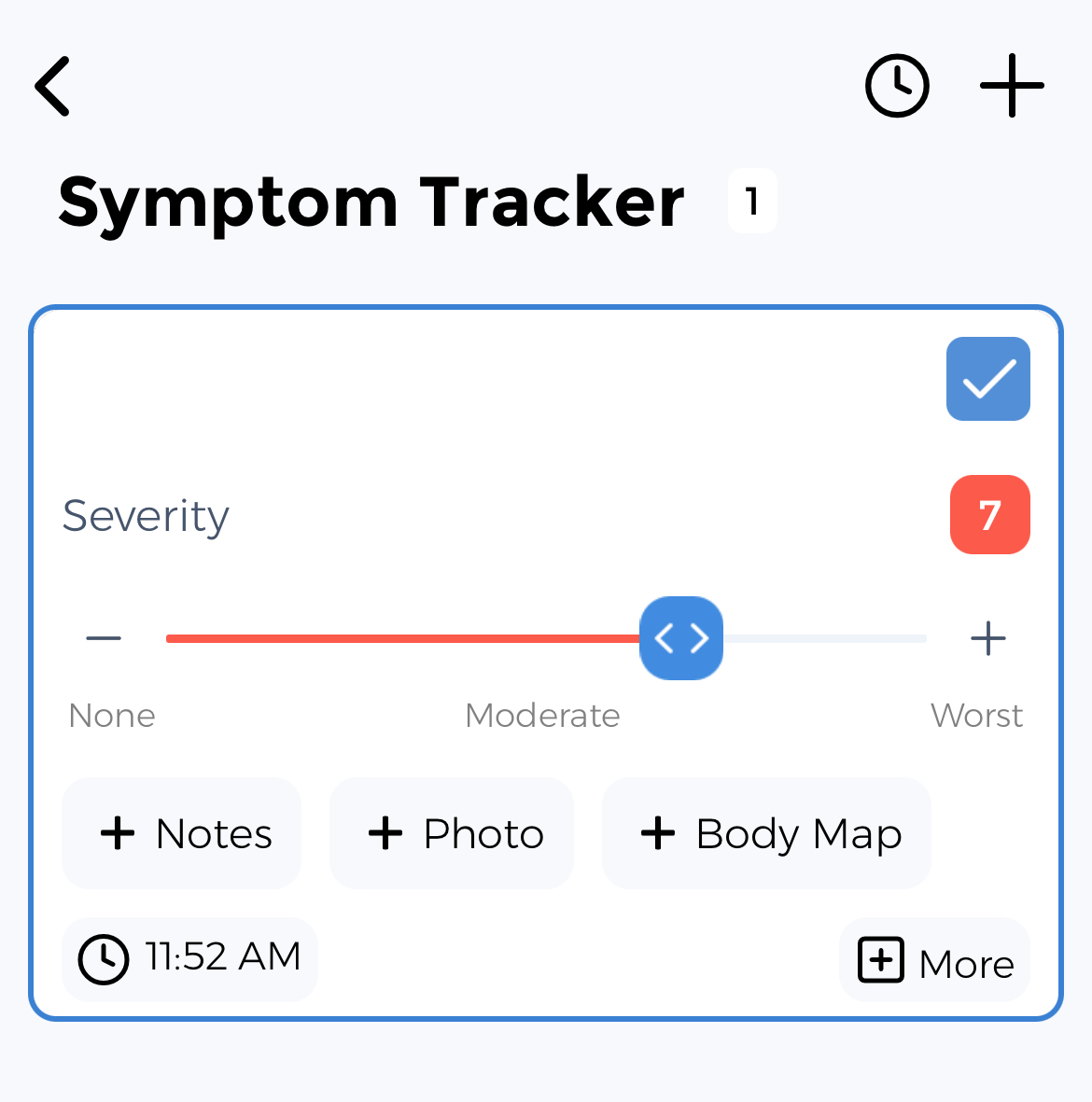Degenerative Disc Disease Symptom Tracker: Your Health Assistant
Living with Degenerative Disc Disease means dealing with back pain, neck pain, pain that radiates to arms or legs, and more. But here's the truth: Data is your most powerful tool. Every logged symptom reveals patterns—so you can take informed action.
Degenerative disc disease occurs when normal changes in spinal discs cause pain. Tracking symptoms helps monitor progression, identify triggers for pain exacerbation, and evaluate treatment effectiveness.
Key Degenerative Disc Disease Symptoms You Should Track
Struggling with symptoms like these? Tracking them reveals patterns, triggers, and how they impact your daily life.
Back pain
Neck pain
Pain that radiates to arms or legs
Numbness
Tingling
Muscle weakness
Limited range of motion
Pain that worsens with certain movements
Pain that improves with rest
Flare-ups and remissions
Track Your Degenerative Disc Disease Treatments
Tracking how these common treatments affect your symptoms can help you and your healthcare provider optimize your care plan:
Our tracker helps you monitor when you take medications and how they affect your symptoms over time.
Standardized Degenerative Disc Disease Assessments
Complete these evidence-based assessments in the App to measure your severity and monitor your progress:
⚡ Knowledge Is Your Superpower
The difference between feeling overwhelmed by Degenerative Disc Disease and feeling in control starts with data. When you track your symptoms, you transform uncertainty into clarity. Every data point brings you closer to understanding your unique patterns.
It's free to try for anyone—whether you're managing your own condition, supporting a child, helping an aging parent, or assisting a partner. Our tracker adapts to your specific role in the health journey.
How the CareClinic Degenerative Disc Disease Symptom Tracker Adapts to Your Needs
Adults
Caregivers
Parents of Children
Young Adults
Your Complete Degenerative Disc Disease Management Toolkit
Uncover Patterns & Insights
Map your Degenerative Disc Disease symptoms like a detective solving a case.
Understand Your Medication's Impact
Turn guesswork into strategy. See how treatments affect your well-being with clear health insights.
Objectively Measure Your Progress
Use clinically validated tools to objectively measure your progress.
Other Tools You May Like...
Plus 4 more specialized tracking tools available
Access All Tracking ToolsAlso Supports Other Conditions Like
Herniated Disc Tracker
Herniated Disc warriors use our tracker to monitor back pain, leg pain.
Osteoarthritis Tracker
Osteoarthritis warriors use our tracker to monitor joint pain, joint stiffness.
Sciatica Tracker
Sciatica warriors use our tracker to monitor leg pain, lower back pain.
Chronic Back Pain Tracker
Chronic Back Pain warriors use our tracker to monitor persistent back pain, limited mobility.
Success Stories from Our Community
"The most valuable feature for me was the sleep position tracker. After years of frustration, but after tracking consistently, I regained confidence in social situations."
"I wish I'd started tracking my Degenerative Disc Disease years ago. After countless failed treatments, but within 14 months of using this app, I stopped blaming myself for symptoms."
Take Control of Your Degenerative Disc Disease Journey
Transform from feeling like a passive patient to becoming an informed self-advocate. Join thousands who've discovered new insights about their condition.
Designed by people who understand the daily challenges of managing chronic conditions, we're here to support you and your ❤️ ones.
Download Your Degenerative Disc Disease Tracker NowYour Data is Protected
Private & Secure
HIPAA Compliant
GDPR Compliant
Never Sell Data
Your data is yours: You get full control over who can view your information. CareClinic keeps all your data secure and encrypted.
References based on studies by:

